Want to Improve your Demographic Data Collection? This Guide Can Help!
In our mission to integrate more equitable data practice, The Equity in Data Community of Practice most recent session furthered that mission in the topic of demographic data collection. You can learn more about the Equity in Data Community of Practice here or look through the resources that have been shared from our sessions. We meet monthly, and you can sign up to join us here (curiosity and interest in data are the only requirements!). If you are interested to learn more about CTData, check out what we do and the services we provide. For training and tips on how to use data to inform your personal and professional life, register for one of our CTData Academy workshops or browse our blog. You can keep up with us by subscribing to the CTData newsletter and following us on Twitter, Facebook, and LinkedIn.
Demographic data collection (items about people's characteristics - their race and ethnicity, age, income, etc.) offers great promise. It allows us the chance to disaggregate data to learn whether different groups are benefiting more than others.
However, Jasmine Johnson the Program Associate for Evaluation and Learning at The Charles and Lynn Schusterman Family Philanthropies kept receiving requests of assistance from guarantee partners on how to gather demographic data in an inclusive way.
Unable to find valuable resources online, Jasmine and her manager created the More Than Numbers Resource: A Guide Towards Diversity, Equity, and Inclusion. The mission of this guide is to make sure people feel represented in the surveys, applications, and tools we are creating. And that we are gathering the most valuable nuances to our data to make sure we are reaching the most marginalized communities.
The presentation consisted of an overview of the guide and the best practices with examples. One of the topics were questions to consider prior to collecting demographic data. Below are those questions.
Consideration Prior to Demographic Data Collection
Does this program or strategy want to reach a specific population? Why?
What specific decisions will the data help inform? Will the data be pertinent and actionable?
What data do you "need to know" versus what data is "nice to know?
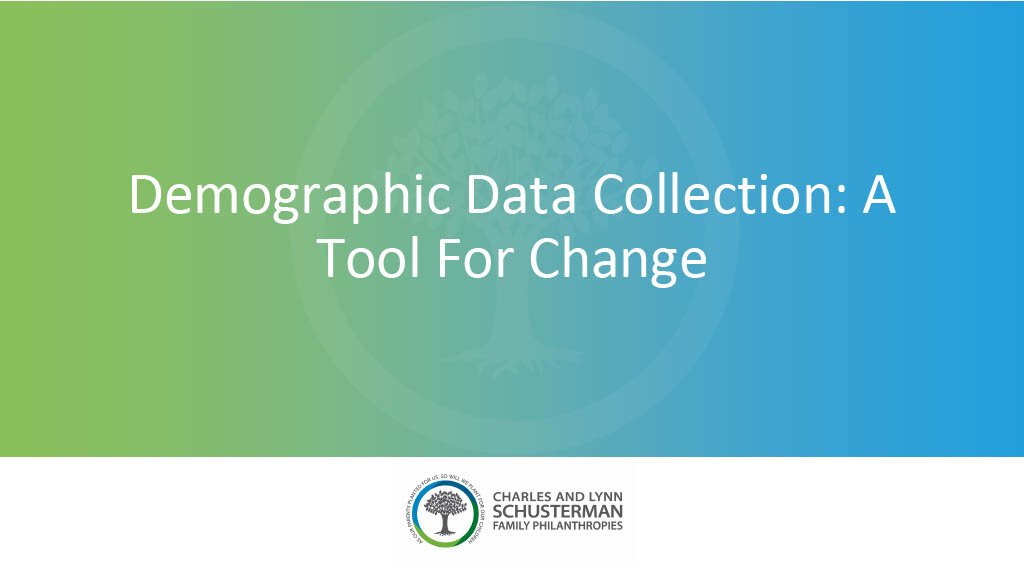
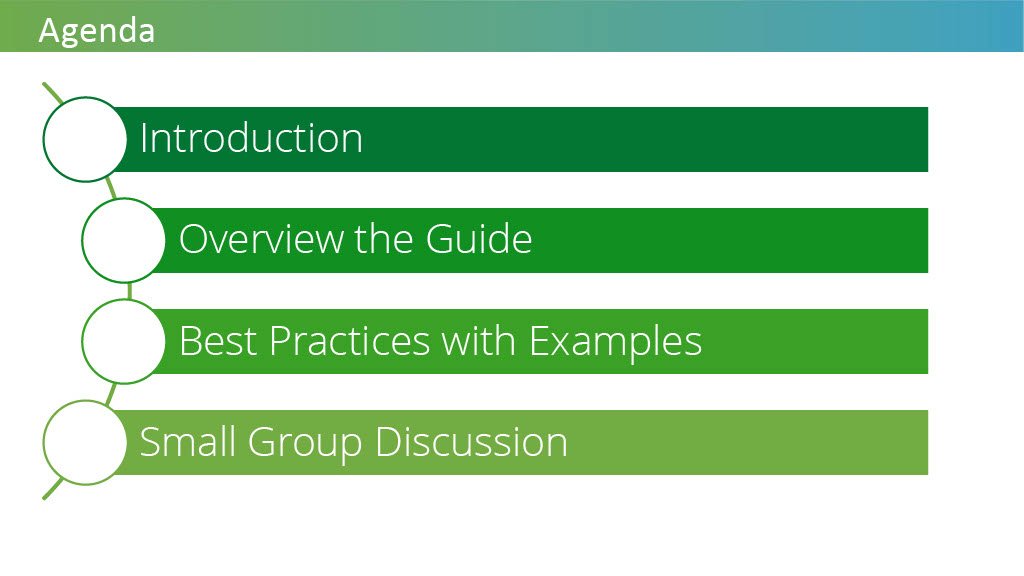
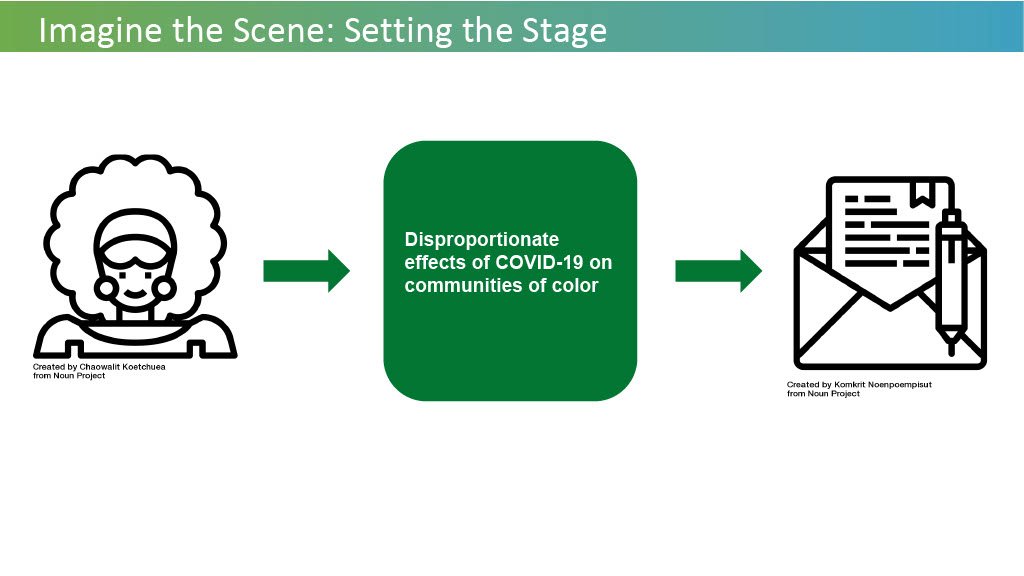
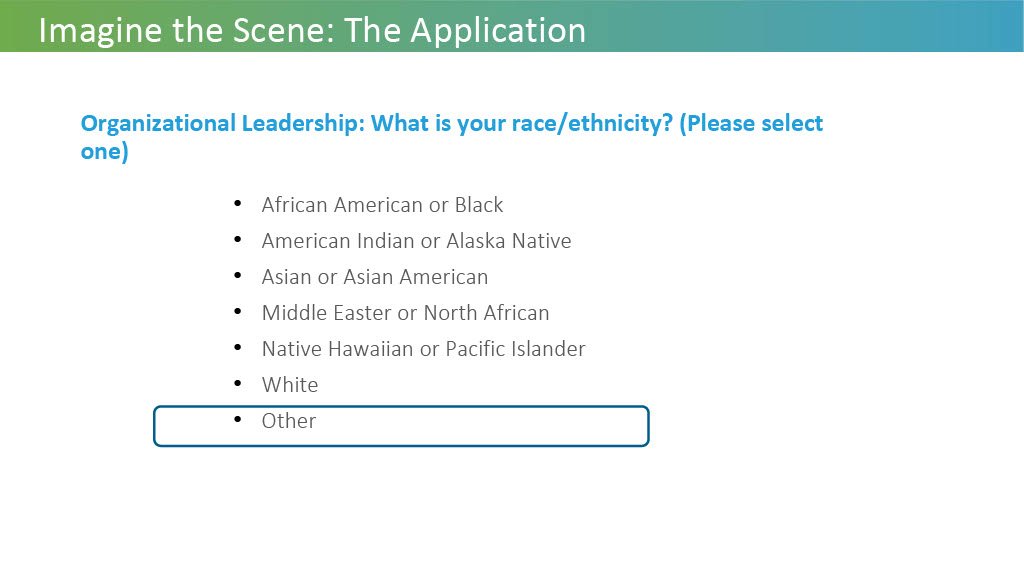
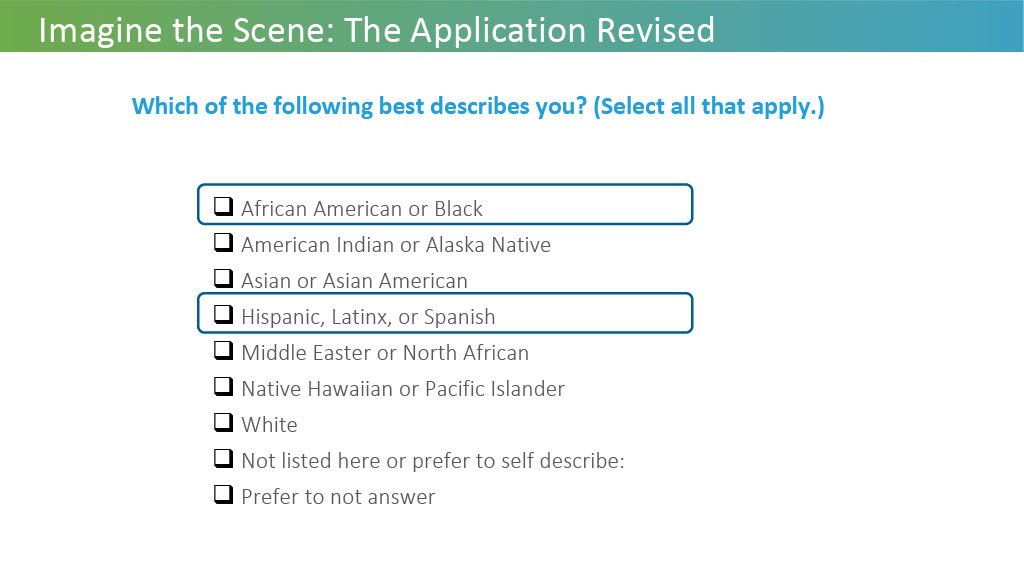
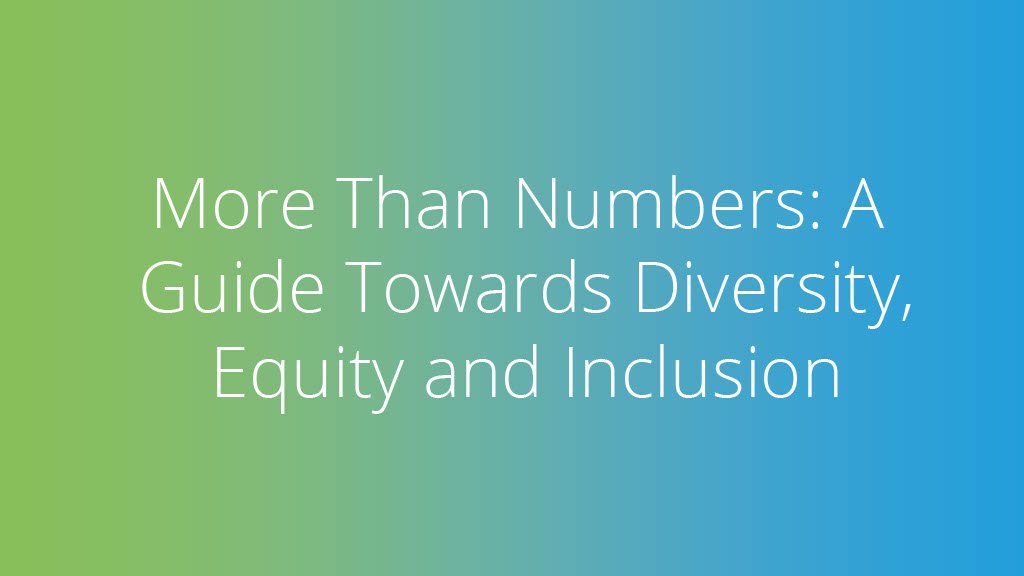
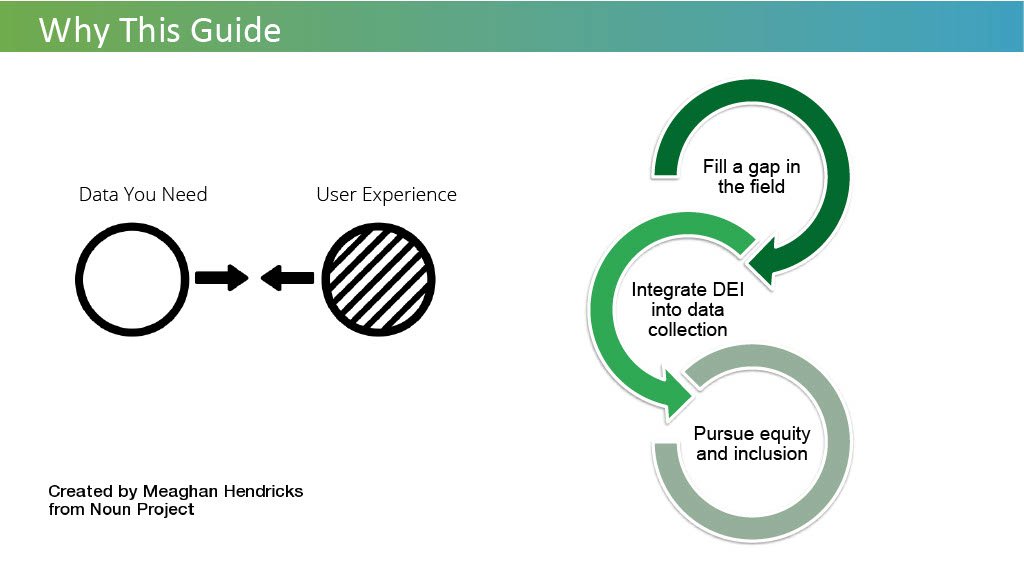
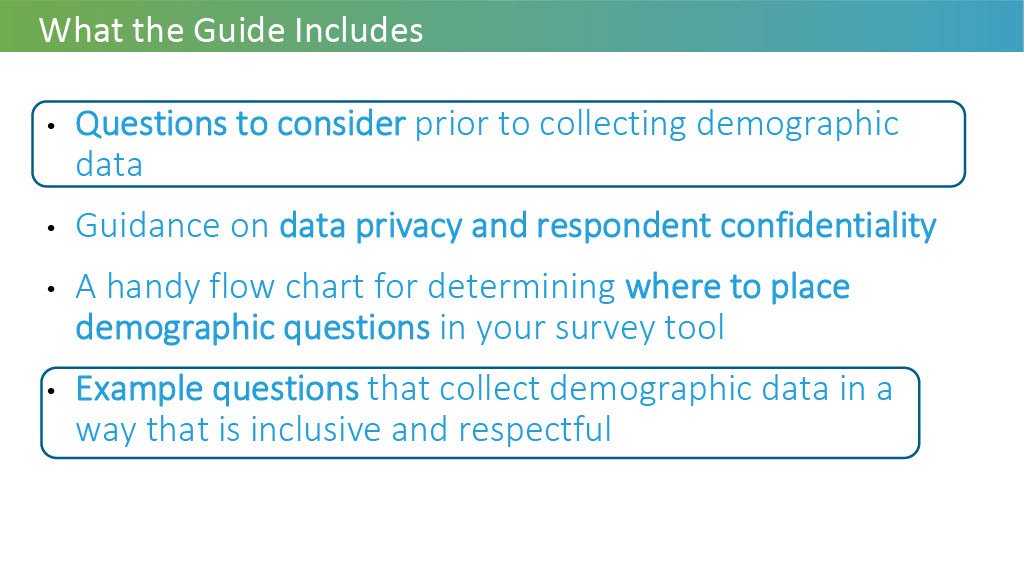
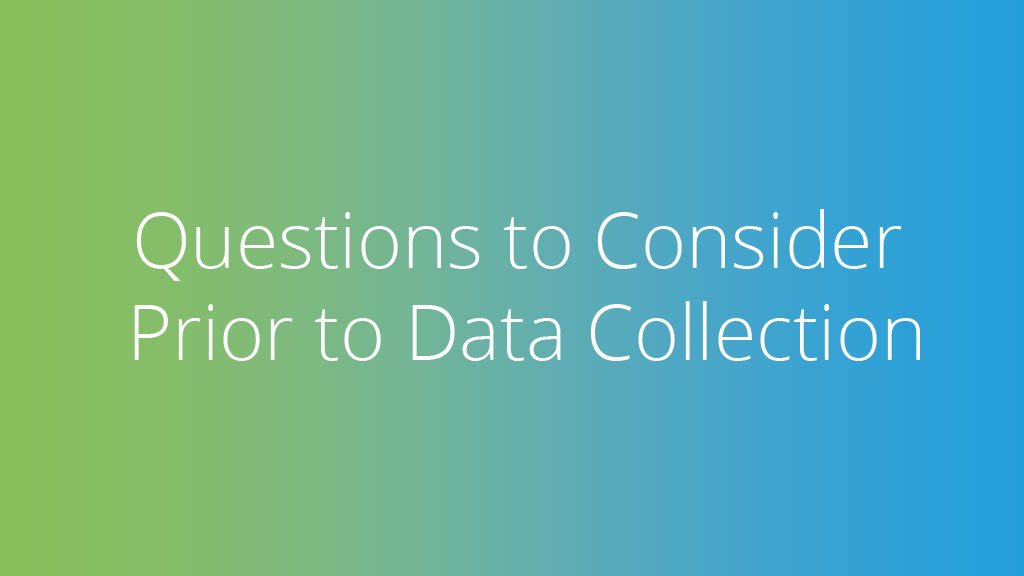
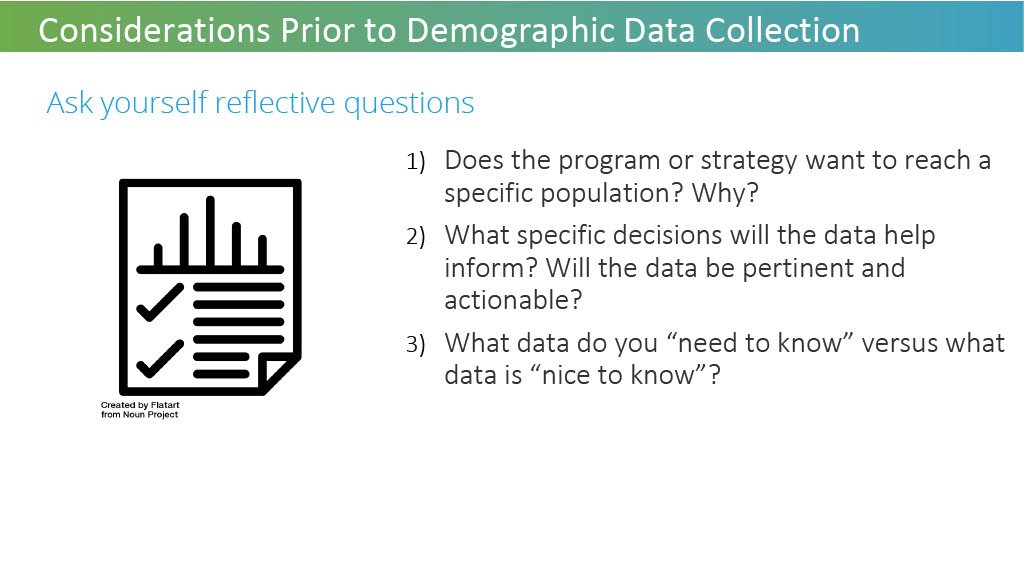
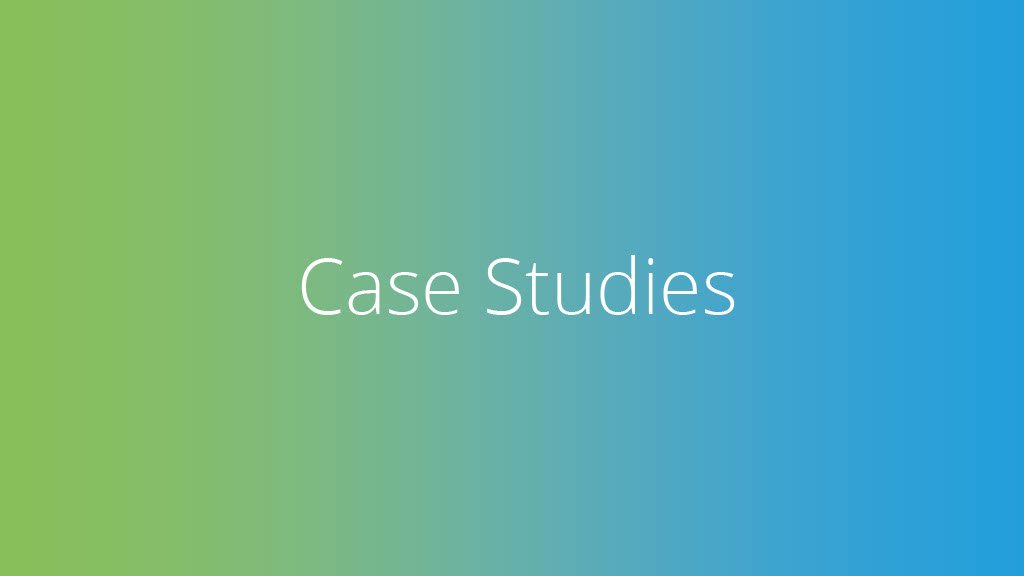
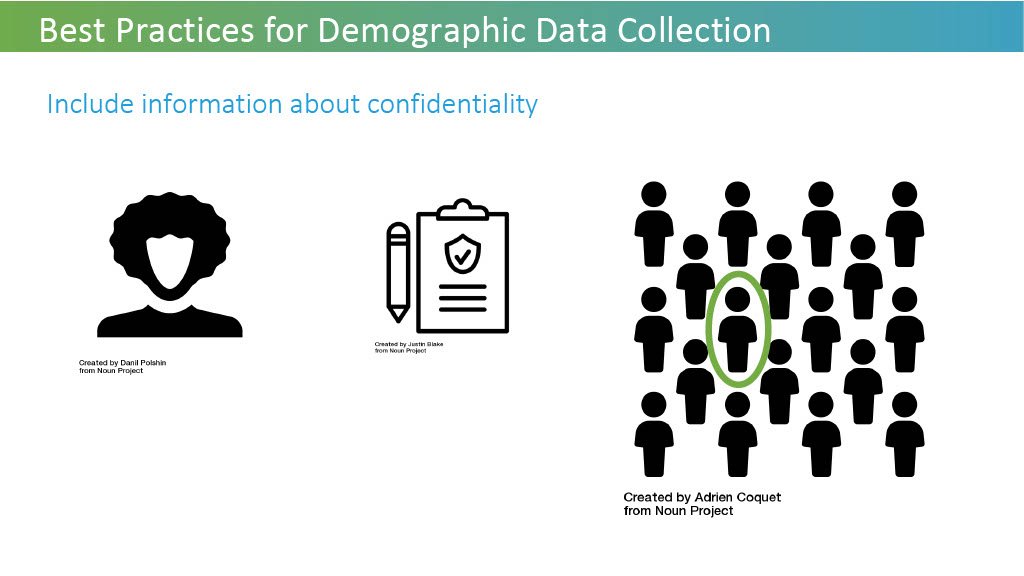
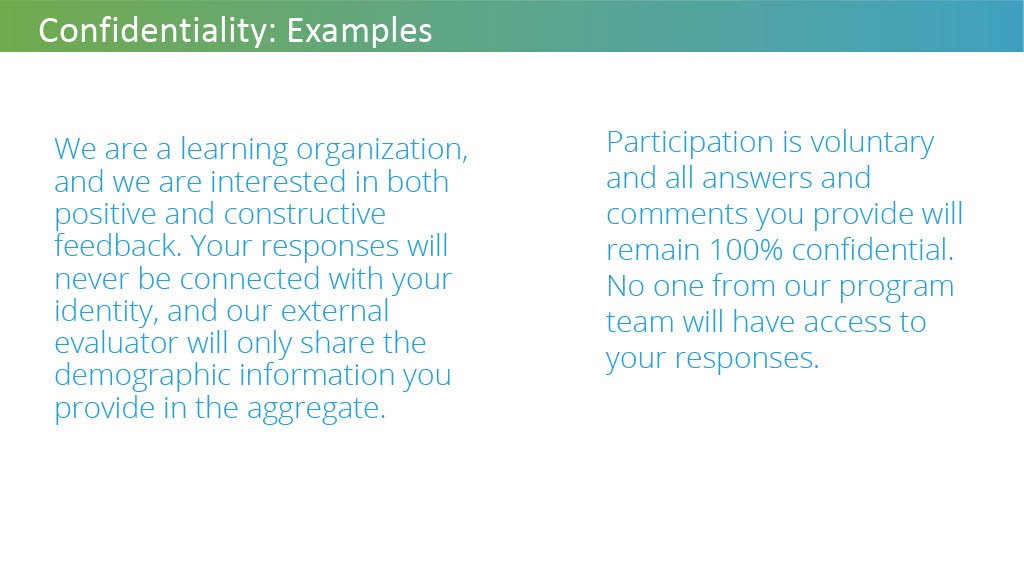
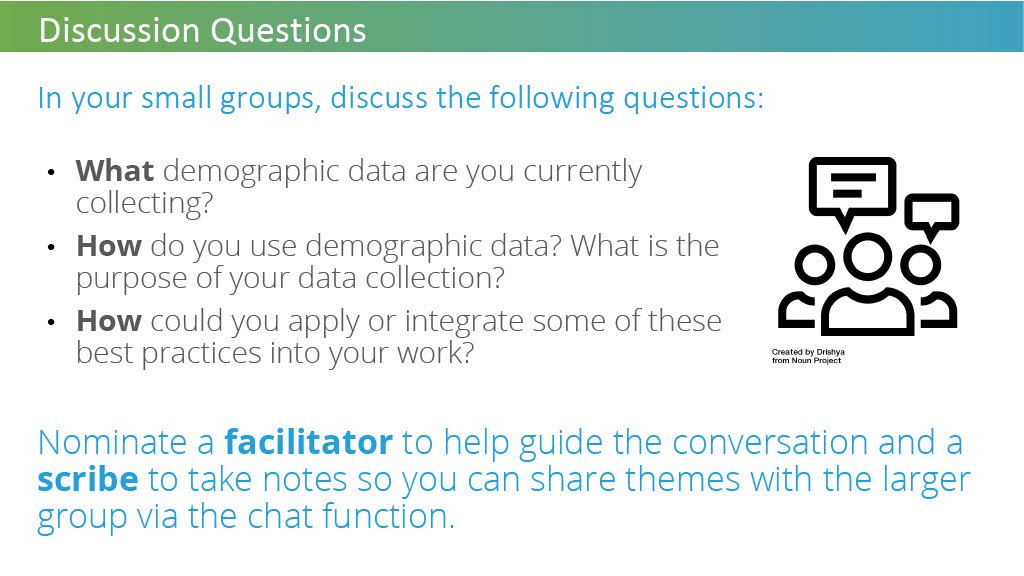
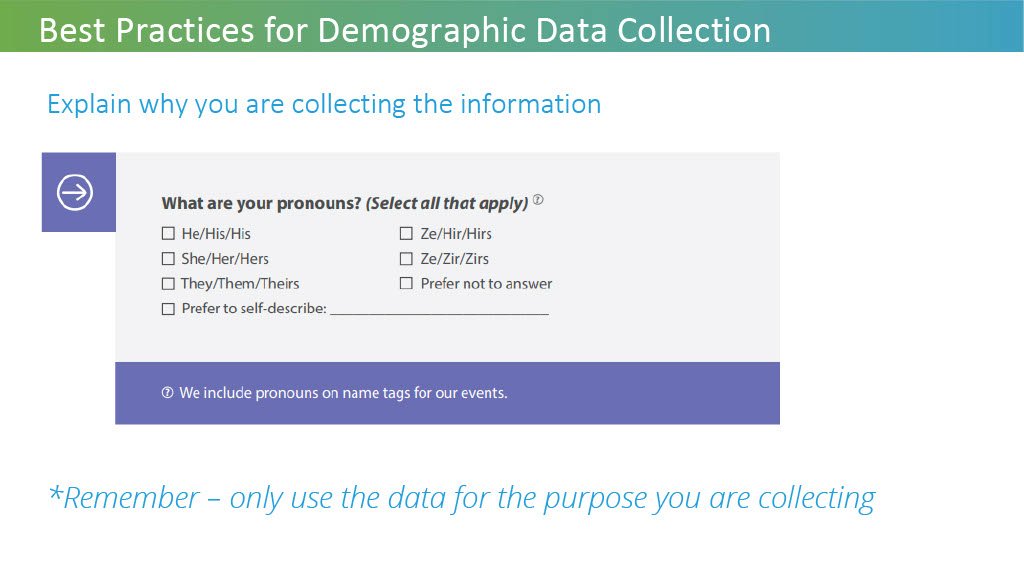
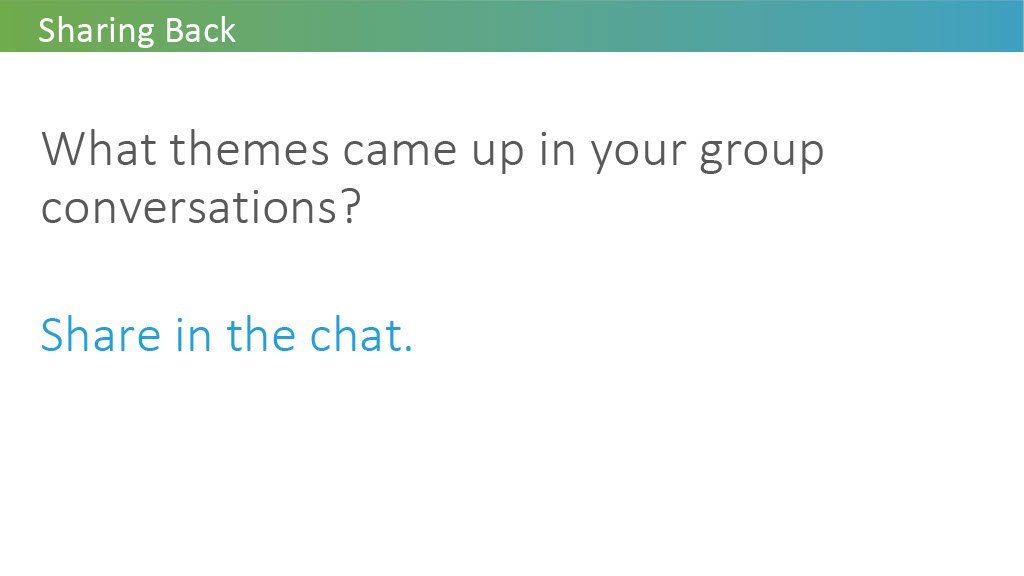
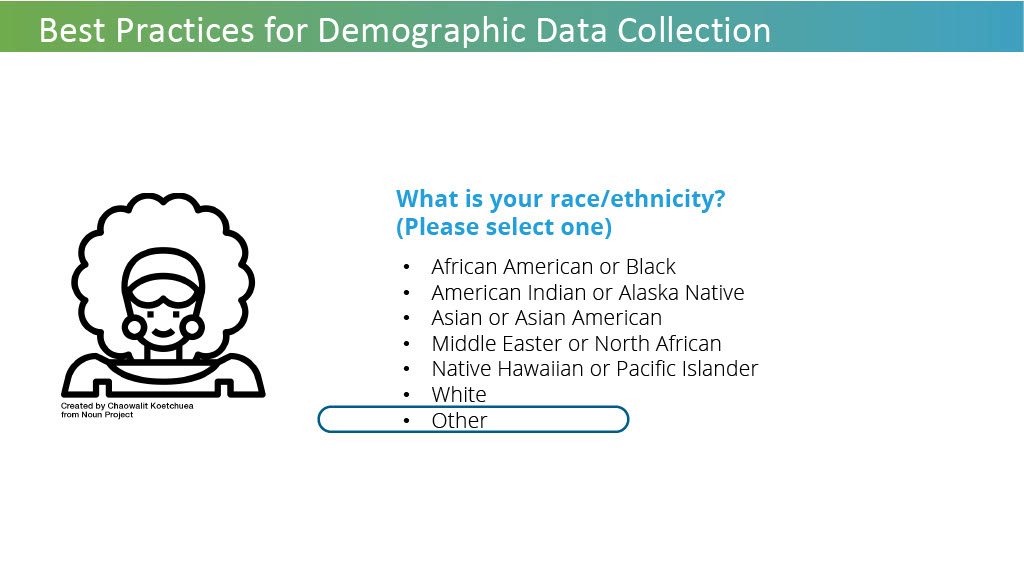
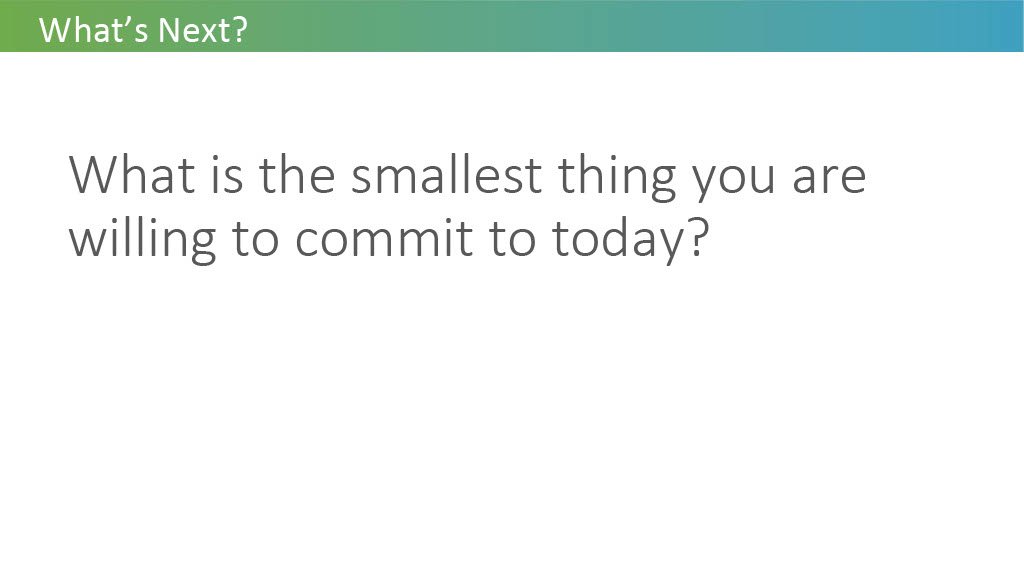
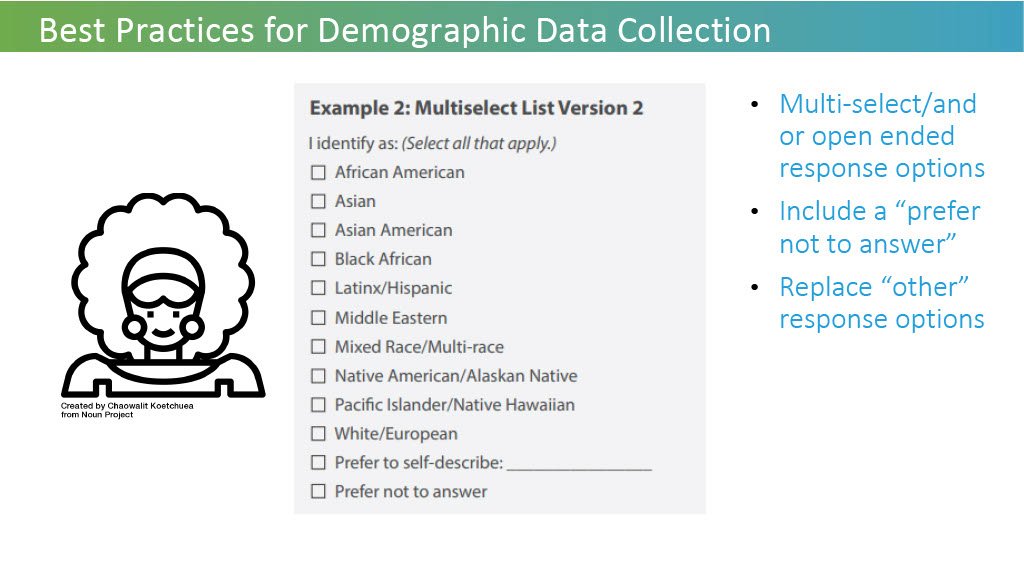
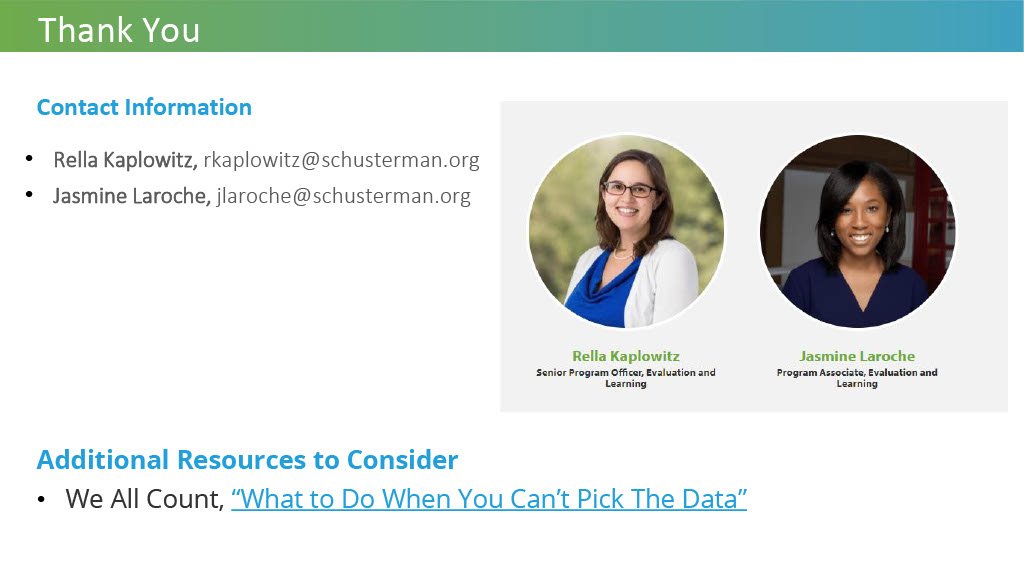
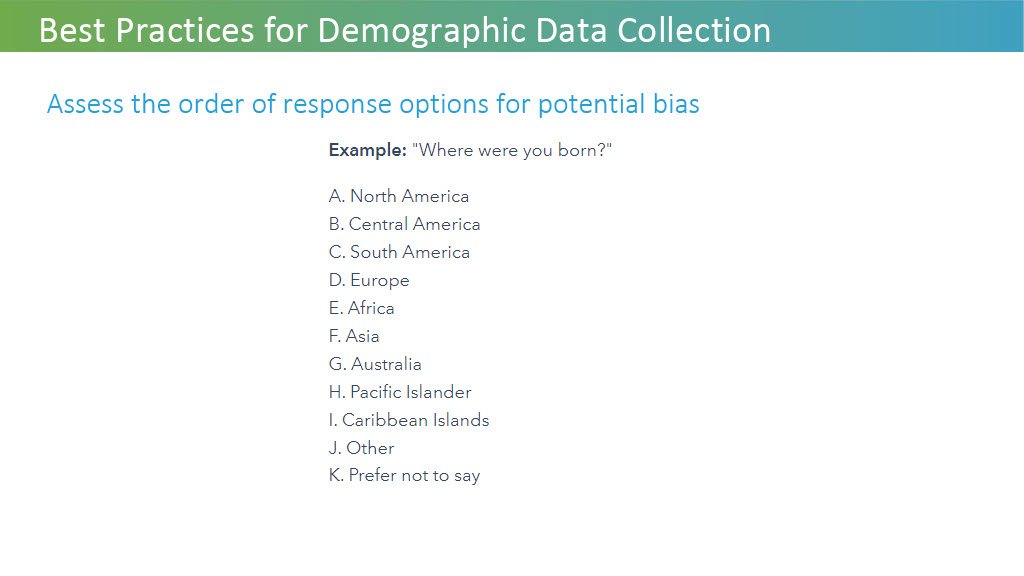
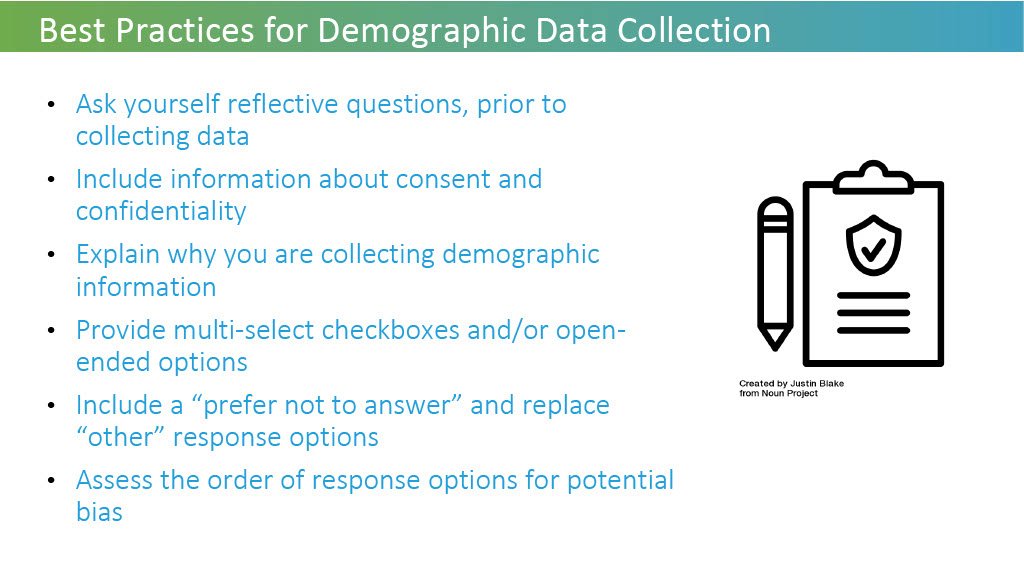
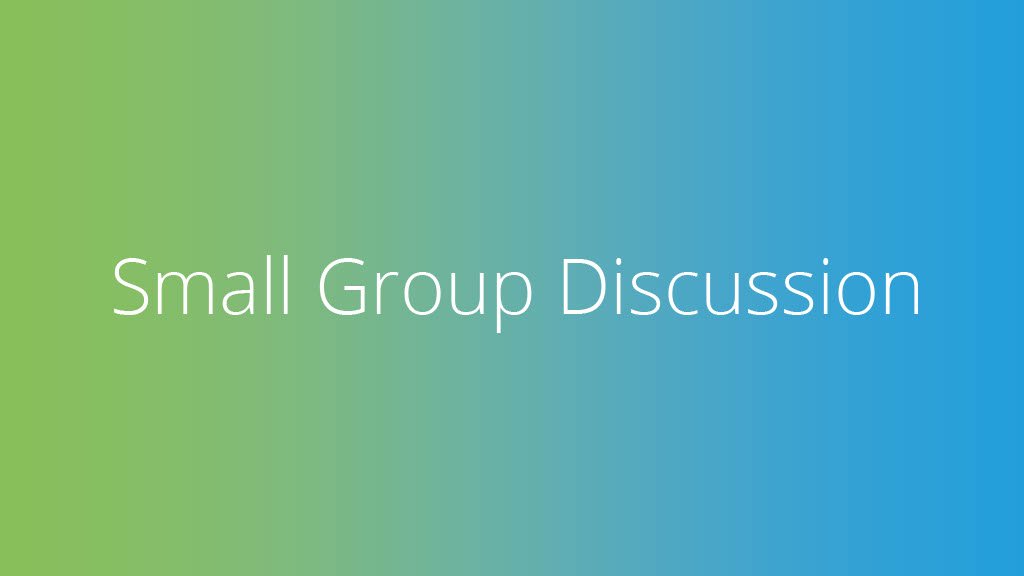
You can learn more about the Equity in Data Community of Practice here or look through the resources that have been shared from our sessions. We meet monthly, and you can sign up to join us here (curiosity and interest in data are the only requirements!). If you are interested to learn more about CTData, check out what we do and the services we provide. For training and tips on how to use data to inform your personal and professional life, register for one of our CTData Academy workshops or browse our blog. You can keep up with us by subscribing to the CTData newsletter and following us on Twitter, Facebook, and LinkedIn.
